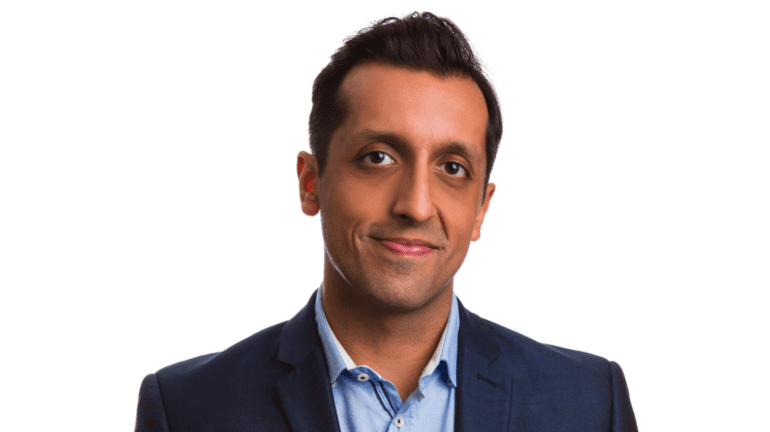TL;DR:
- OpenAI appoints Rishi Jaitly, former Twitter India head, as senior advisor for its India entry.
- The move aims to facilitate discussions with the Indian government on AI policies and regulations.
- OpenAI is actively exploring the possibility of establishing a local team in India.
- Rishi Jaitly’s extensive experience in the tech industry, including roles at Google and Twitter, makes him a valuable asset for OpenAI.
- OpenAI’s VP of Global Affairs, Anna Makanju, is scheduled to participate in a summit in Delhi to showcase the organization’s commitment to India.
- Despite leadership changes, OpenAI continues to pursue its interests in India’s growing AI market.
Main AI News:
OpenAI, the pioneering artificial intelligence research organization, is making significant moves to establish a foothold in India, with the appointment of Rishi Jaitly, former head of Twitter India, as a senior advisor. This strategic move aims to facilitate dialogue with the Indian government regarding AI policy and regulations. Sources familiar with the matter have confirmed that Jaitly has been instrumental in guiding OpenAI through the complex Indian policy landscape.
While OpenAI currently lacks an official presence in India, aside from recent trademark approval, the company is actively exploring the potential for local operations. OpenAI’s co-founder and CEO, Sam Altman, laid the groundwork during his visit to New Delhi in June when he met with Prime Minister Narendra Modi. However, no formal announcements were made during this visit.
The exact nature of Jaitly’s role within OpenAI remains undisclosed, but it is evident that he is playing a pivotal advisory role in establishing critical connections in India. He assumed this position shortly after Altman’s visit to New Delhi, according to sources.
Rishi Jaitly brings a wealth of experience to this role, having previously led public-private partnerships for Google in India from 2007 to 2009. Subsequently, he joined Twitter as the company’s first employee in India and later became the Vice President for the APAC and MENA region. In 2016, Jaitly co-founded Times Bridge, the global investment arm of The Times Group, which boasts a portfolio that includes Uber, Airbnb, Coursera, Mubi, Smule, and Wattpad. Jaitly parted ways with Times Bridge in 2022.
OpenAI and Jaitly have yet to comment on this strategic collaboration.
Notably, Anna Makanju, OpenAI’s Vice President of Global Affairs, is set to address the Global Partnership on Artificial Intelligence summit in Delhi. This engagement, titled “Collaborative AI for Global Partnership (CAIGP) – Global Cooperation for Equitable AI,” was made possible with Jaitly’s assistance in arranging Makanju’s participation.
OpenAI has recently undergone leadership changes, with Sam Altman and board president Greg Brockman briefly departing the company before returning with a revamped board structure.
During Altman’s June visit to New Delhi, he garnered attention for his comments on the challenges of building foundational AI models with a limited budget. These remarks drew some criticism from Indian entrepreneurs, though Altman later clarified that his statements were taken out of context.
Despite being home to over 1,500 AI-based startups with more than $4 billion in funding, India is perceived as lagging behind in AI innovation due to comparatively limited funding. In contrast, China’s AI ecosystem has attracted approximately $50 billion in investment, while OpenAI alone has secured over $11 billion in funding.
OpenAI sees India, as the world’s second-largest internet market with over 880 million users, as a promising growth opportunity. However, the organization has yet to announce any concrete investments in the country, aside from the recent trademark approval.
While India’s government has expressed a willingness to collaborate internationally on AI regulations, OpenAI must navigate the regulatory landscape carefully as it seeks to expand its presence in this dynamic market.
With a more aligned board and a renewed commercial focus, OpenAI’s strategic efforts in regulation may prove pivotal in shaping the organization’s future direction in India. Understanding the evolving landscape will be essential for the successful establishment of OpenAI’s operations in the region.
In contrast to OpenAI, its primary investor and strategic partner, Microsoft, has a well-established presence in India. Microsoft has operated in the Indian market since 1990, boasting one of its largest R&D centers in Bengaluru and three data centers across the country, along with over 20,000 employees in 10 Indian cities. Microsoft also actively invests in Indian startups, further solidifying its position in the Indian tech ecosystem.
Conclusion:
OpenAI’s strategic collaboration with Rishi Jaitly and its efforts to engage with the Indian government reflect the organization’s commitment to expanding its presence in India’s burgeoning AI market. Leveraging Jaitly’s expertise and connections, OpenAI is poised to navigate the complex regulatory landscape and tap into the vast potential presented by India’s tech ecosystem. This move underscores the importance of India as a key market for AI development and innovation.

